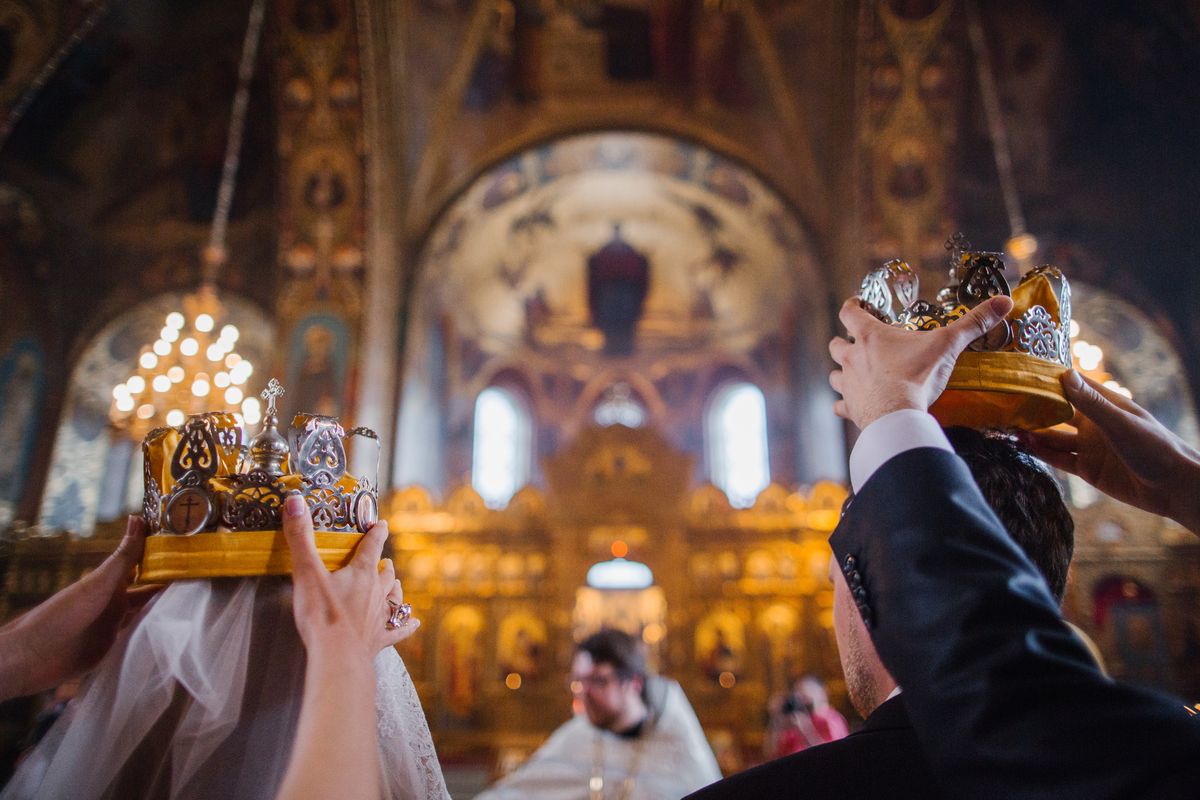
A Living Liturgical Tradition
2019-01-17
I feel like I should get this out of the way before we get started here: I love the liturgy. I really do. I’ve been a part of a liturgical tradition for 15 years now, nearly half of my life and I honestly can’t imagine not participating liturgically in my worship of God. With that out of the way, you’ve been warned.
I went to a crowning service last weekend for a couple of kids who joined the Orthodox Church a few weeks ago. For the non-Orthodox here, an Orthodox wedding is like something you’ve most likely never seen. The most striking difference for most first timers is that we don’t do vows. I’ll probably delve into the reasons and rationale behind that later, but I’m trying to stay focused. Instead, we have a betrothal, crowning (with literal crowns), a procession called the Dance of Isiah and drinking from a common cup. It’s really a pretty awe-inspiring service. I studied it in my grad work and then was asked to help put together an explanation for my godson and his wife when they got married and the more I learned, the more I loved the service.
Back on topic, I was serving at a crowning service last weekend. The couple had been married outside of the Orthodox Church before they joined and this was a service in which the pr
St. Paul tells us in the the wedding epistle that this is a profound mystery, the term we Orthodox use for Sacraments.
What struck me so much during the wedding, despite all of the Orthodox weddings I’ve attended, is what I didn’t remember, or, better stated, what didn’t jump out at me. This wasn’t a new experience for me. I gain a new perspective or new insight into what marriage means and what marriage is. As a side note and a personal soap box here, this is part of the reason I try to attend all weddings at our parish (baptisms, chrismations and funerals as well) - these are family events and we, as Christians, especially of the same parish, are a family, we are brothers and sisters in Christ and these events should be shared and celebrated with one another, with those of us from the parish praying for the couple, the baby, the initiate or the reposed.
That’s the beauty of the liturgical life. When I attend a wedding, I hear the priest pray over the couple and confer God’s blessing on them. The Epistle from the service reminds us that marriage is selfless. By attending weddings at our parish, the beauty of my marriage is continually reinforced as is my role as a husband. As I’m joining the Church in praying for this new couple, I am also praying for myself, my wife and our union.
This is true in all of the services and mysteries of the Church. When I attend a baptism or chrismation, I relive my baptism, my chrismation. The same is true for the Epiphany/Theophany service - with the prayers of the blessing of the waters and the rememberance of Christ’s baptism, my own baptism is brought to mind. This isn’t by accident. When we relive the events in the life of Christ, of the Virigin Mary, of the Saints and of the Church, these events are reminders of salvific experiences in our lives. At the Nativity of Christ, we are reminded that we are partakers of the divine nature because of Christ’s humanity; at Transfiguration, we are called to be Transfigured; at the Feast of the Elevation of the Cross, we are reminded that we too died with Christ in the waters of baptism that we may be raised with him; at the Annunciation, we are reminded of the call to choose Christ we answered; at Pentecost, we are reminded of the outpouring of the Holy Spirit on us at our Chrismation; at each and every Eucharistic service, we are reminded of the Eucharist we took when we became members of the Church. Not only are these things from the past that we remember or meditate on, they are recreative events that we participate in anew each and every time if only we are receptive.